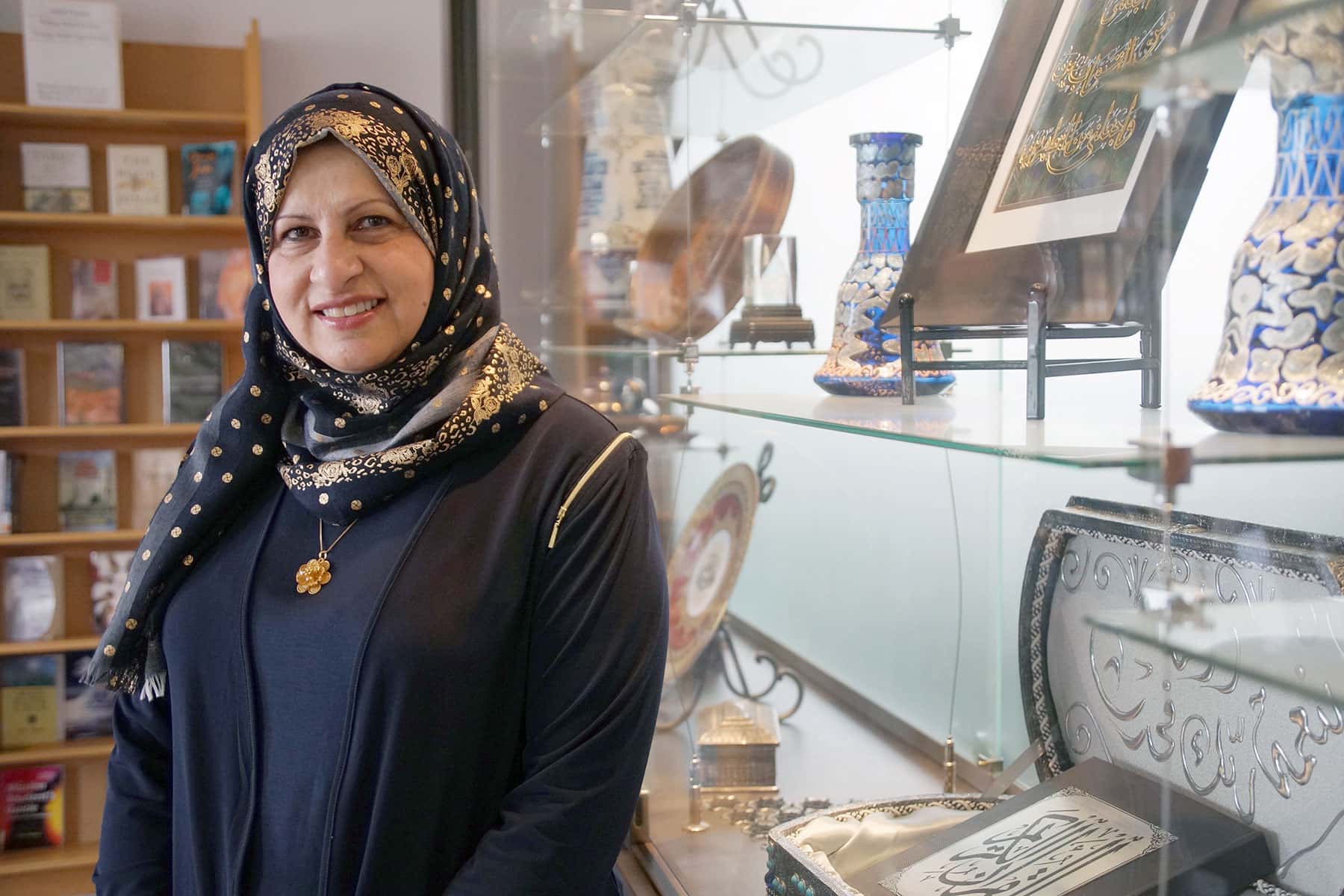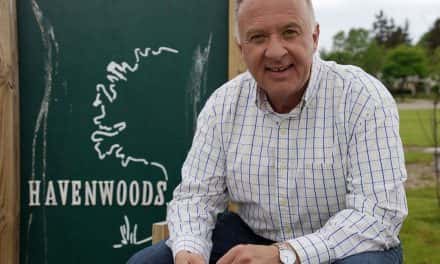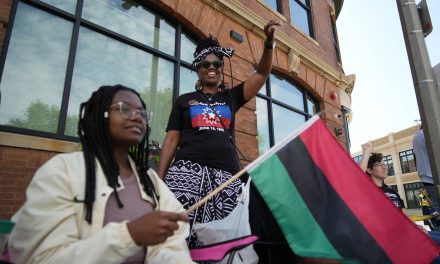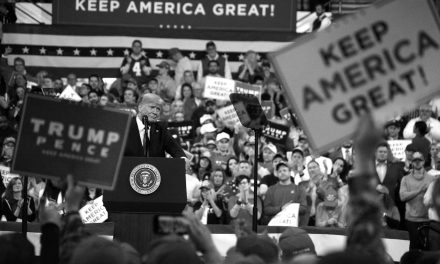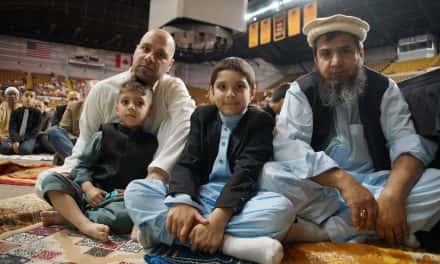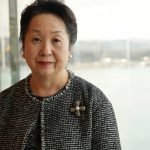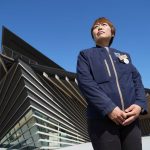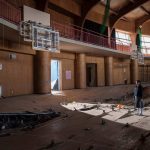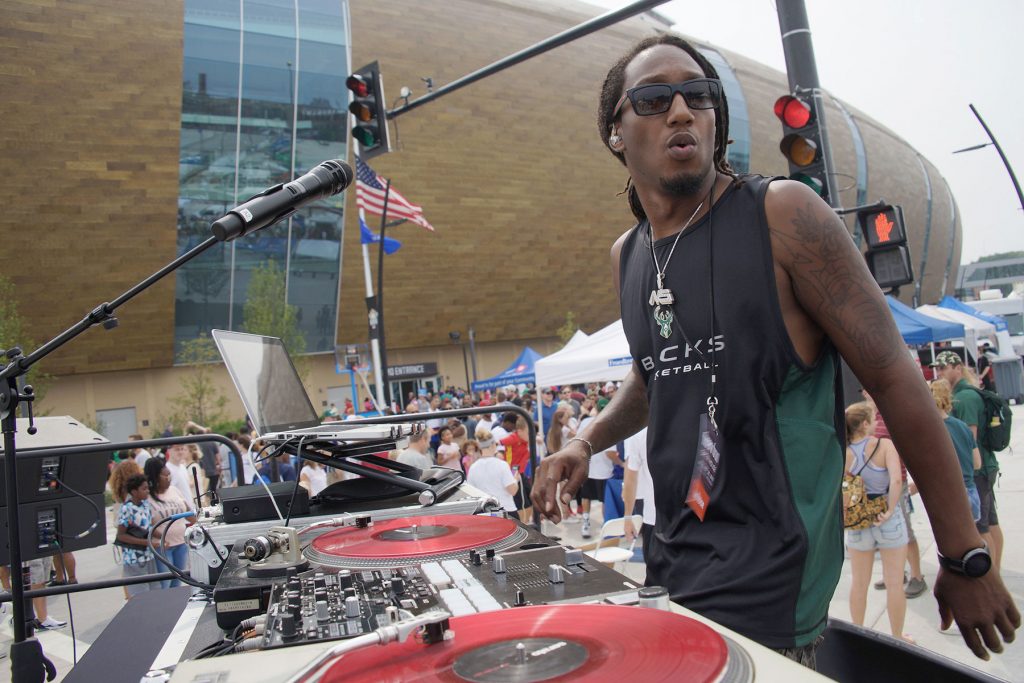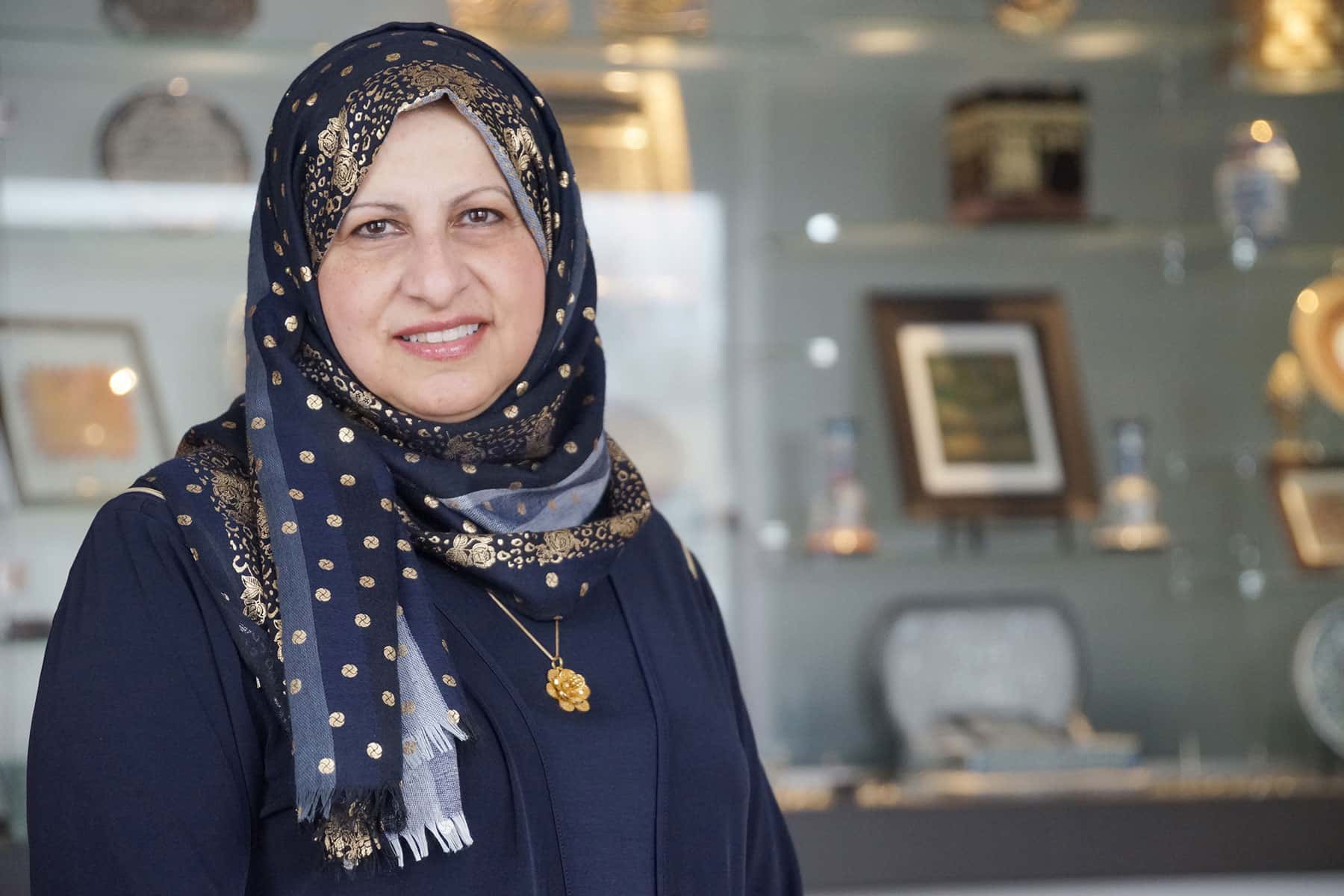
A microbiologist by profession and mother of five, Janan Najeeb left her career to advocate for the understanding of Muslim culture in Milwaukee, and uses education to change public misperceptions.
As founder of the Milwaukee Muslim Women’s Coalition and spokeswoman for Muslim issues in the city, she has been dedicated to social justice and positive change that touches all Milwaukee communities and people of faith.
Q&A with Janan Najeeb
Milwaukee Independent: Experiences are different for each individual, but what is it like for Muslims in Milwaukee to practice their faith?
Janan Najeeb: In general, it is not difficult. However, the difficulty arises if you are working for an establishment that will not make accommodations to allow us to dress as our faith requires or to perform our prayers in a timely manner. Also, with the national hysteria targeting Muslims, it is sometimes difficult to perform prayers in a public space due to fears of people that do not know much about Muslims regarding what that means. I personally have had very minimal challenges, but as the leader of an organization that advocates for Muslims, I know many Muslim women that dress Islamically and many men that want to have a space for prayer in the workplace face ridicule, discrimination, and even loss of jobs.
Milwaukee Independent: What is the most common question non-Muslim people ask about your faith?
Janan Najeeb: As a woman, it used to be why do I cover my hair? These days, people want to know about ISIS and the violence taking place in parts of the Muslim world. People are also asking if the anti-Muslim rhetoric is affecting us negatively.
Milwaukee Independent: Are there different Muslim sects in Milwaukee, and if so what is the composition the total community?
Janan Najeeb: The Muslims we encounter in Milwaukee are usually Sunni or Shia. The vast majority in Milwaukee are a reflection of the composition on a world scale, with 85% representing Sunni and 15% representing Shia.
Milwaukee Independent: From what countries do the majority of Islamic worshipers in Milwaukee come from?
Janan Najeeb: The Muslims are an incredibly diverse group, they probably represent about 45 countries. Nationally, Muslims represent about 77 countries. In Milwaukee, the majority represent two groups: Arab (22 countries) and South Asians (India, Pakistan, Bangladesh). The majority of Arabs in Milwaukee are Palestinians, and the majority of South Asian Muslims are from Pakistan.
Milwaukee Independent: Words can be powerful and often misunderstood. How are Arabs confused with being Muslims?
Janan Najeeb: Islam is the name of the faith, similar to Christianity or Judaism. Muslim is a practitioner of that faith. A lot of people seem to confuse Arab with Muslim, thinking that they are synonymous. But in fact they are not. Arabs only make up about 15 to 17 percent of the Muslims in the world.
Milwaukee Independent: What economic hardships do members of the Muslim community in Milwaukee suffer from most?
Janan Najeeb: Actually, a large number of the Muslim immigrants are a highly educated community, many came to the United States for higher education and economic opportunity. They have been ranked right behind American Jews in terms of education levels. So most of them are relatively comfortable economically and in fact are very involved in programs that give back to the Milwaukee community. Most of the Muslim individuals that are facing economic hardships are within the African American Muslim community and many of the newer refugee communities.
Milwaukee Independent: Are Milwaukee citizens knowledgable and supportive of Muslim communities in the city?
Janan Najeeb: It depends. Those that have Muslim friends and colleagues or are big on social justice and interfaith collaborations are very supportive. In some of the more homogeneous areas of the city, where people do not interact as much outside their bubble, you will find people that have internalized stereotypes regarding the Muslim community.
Milwaukee Independent: What would help promote understanding of the Muslim culture to the average person in Milwaukee?
Janan Najeeb: If people would get out of their comfort zones and make it a point to visit an ethnic restaurant or grocery store or establishment where they would meet Muslims. Also, individuals need to expand their sources for information. There are some talking heads and media that sell sensationalism and hatred, and they build on some people’s lack of knowledge and critical thinking skills.
Milwaukee Independent: Have you been able to make progress in Milwaukee to help people learn about the Muslim community?
Janan Najeeb: I like to believe that we have made progress. We spend more and more time speaking to groups due to increased requests. We hope that these individuals share their experiences with family and friends, at least we hope they will be able to say what Islam is and what it is not. I have encountered many individuals that will say, “you have cleared up a lot of questions and concerns that I had,” this really makes our work worthwhile.
Milwaukee Independent: What is your biggest fear for the future welfare of the Muslim community in Milwaukee?
Janan Najeeb: That children that are being bullied because they are Muslim, lose confidence and courage and they no longer think they can change what is happening. I do not want to see Muslims limit their interactions in public in order to avoid harassment, it is precisely during these times that it is crucial to be in public and to interact with people, to challenge the stereotypes.
Milwaukee Independent: What is your greatest joy about being a Muslim in Milwaukee?
Janan Najeeb: My personal experience has been overwhelmingly positive. I came from Palestine as a 4 year old and I grew up in Milwaukee, leaving for about five years after I got married, and then returning here where my husband opened his medical practice. The majority of people in Milwaukee are very warm and kind, I consider myself a “Milwaukeean” to the core. I also naturally gravitate towards intelligent, thoughtful, and interesting people that value diversity and work for social justice.
Milwaukee Independent: How would you describe the Muslim community in Milwaukee? Is it thriving?
Janan Najeeb: Growing up in Milwaukee, I can definitely see the Muslim community is growing and thriving. As a child, there were no mosques or Muslim institutions in the area. Now we have at least eight mosques and the Islamic Resource Center, which has a public lending library. We have a multitude of ethnic stores and restaurants representing the diversity of Milwaukee’s Muslim community. We have a high number of professionals in our community and there is an emphasis on volunteerism and giving back to the community. In addition, we have a significant number of second and third generation Muslims that are actively engaged and looking for ways to positively impact society.
Milwaukee Independent: As a citizen of Milwaukee, what wish do you have for the city’s future?
Janan Najeeb: I am deeply troubled by the racial segregation in the city, the lack of job opportunities, and the upsurge of violence. Although I live in Mequon, I consider this to be my problem as do fellow Muslims. I would like to see economic growth, job opportunities, less segregation, and an end to all of this tragic and senseless violence.
Milwaukee Independent: Everyone prays for peace in the Middle East, but it seems like no one expects it. So should we give up on the idea?
Janan Najeeb: We can never give up on the idea of peace. As a person of faith, I believe we must continue to work for it tirelessly, God will not ask us about the result but rather if we did His work on earth. I really believe peace is achievable if we would only honestly look at what is the cause of the turmoil. We will find that when our government stops supporting tyrannical leaders, immoral occupations and unjust wars, we will make a tremendous leap towards peace.
Milwaukee Independent: How does the Muslim community in Milwaukee compare to other communities in similar sized American cities? And what draws people to this city?
Janan Najeeb: One of the interesting and wonderful aspects of the Muslim community in Milwaukee is that all of our mosques are very diverse, representing every race and dozens of ethnicities, Although we number more than 15,000, many of us know each other. In some cities, the majority of Muslims living there may be immigrants from one or two countries. So you will find, for example, a mosque that is overwhelmingly comprised of immigrants from India and another that is overwhelmingly populated with African Americans.
Milwaukee’s diverse Muslim population has helped us reach a great degree of sophistication and diplomacy, there is no “group think” or doing things based on the experiences of one particular group. We reach consensus and find common ground in spite of the tremendous diversity. So most of the time we are able to come up with the best possible solution or scenario. I think this has really helped us mobilize upward as a community.
Also, when you have a very large community, you tend to stick with your mosque and the people surrounding you. We still feel comfortable attending any of the area mosques and we will collaborate on events and programs. Mosques are not membership based so we will go to any mosque we choose.
